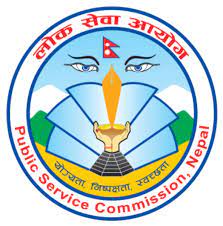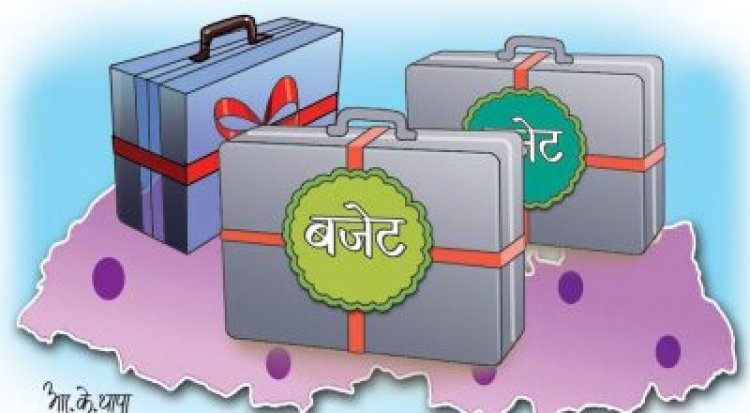Nepal: Good neighborly policy is not just a matter of choice like choosing nearby or distant friends
Professor Dev Raj Dahal Kathmandu, Nepal In the phase of globalization, small states seek to create normative standards to measure the shortfall of great powers’ geopolitical maneuvers, fight for justice in the international system and apply their tricks of the trade to acquire space for independent maneuver. Defining Nepal’s foreign policy as one of nonalignment, […]
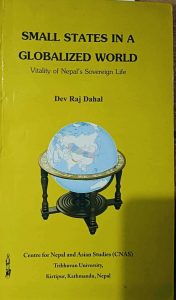
Professor Dev Raj Dahal
Kathmandu, Nepal
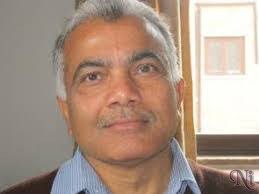
In the phase of globalization, small states seek to create normative standards to measure the shortfall of great powers’ geopolitical maneuvers, fight for justice in the international system and apply their tricks of the trade to acquire space for independent maneuver. Defining Nepal’s foreign policy as one of nonalignment, like many smaller states, is low cost and low risk and the one compatible with national sentiment and interests. Their rights and capabilities have secured security, viability and identity but their aspiration for peaceful regional and global security, economic and political relations remain unfinished. The growth of international laws, ethics, norms and institutions has marked the importance of normative values in international relations and provided a semblance of deterrence for great powers’ meddling in the internal affairs of small states. Owing to globalization, growth of international linkages and worldwide communication, small states like Nepal’s diplomacy has become almost global in scope. Certain conditions such as the ability to create contextually embedded fresh strategic insights and ideas about global and regional geopolitical trends, strong national political will of the leadership, economic stability induced by green growth, social unity and resilient adaptation of foreign policy behavior can add favorable elements for small states like Nepal to cope with the globalization-induced vulnerability, reap opportunity for trade, technology, investment, labor market, etc. from a big world and emancipate the people trapped in the worry of their livelihood.
Nepal’s tangible elements of national power, such as strategic geography, natural resources endowment especially hydro potential, cultural richness, bulging youth population, etc. can rekindle the purpose of its productive economy, social cohesion and good statecraft. Its strategic geography has become a framework of critical knowledge, a cognitive map for the shapers and makers of foreign policy strategies. Leadership knack in adopting judicious policies of “hedging, balancing and bandwagoning,” and combination thereof, between neighbors and superpowers help it to steer in the changing geopolitical conditions and global power shift to Asia. Globalization policies, accompanied by technology, transportation and communication, have given Nepali citizens an opportunity for global labor market opportunity, social mobility and national dynamism in symbolic economy. They have increased the necessity and vitality of improving relations with distant countries and play constructive roles in world politics (Henrikson, 2002: 438). The nation has yet to learn from its history that its existence, right to freedom of action and sovereignty relied on self-help, not excessive dependence on outsiders. Dependency creates vulnerability as the COVID-19 case suggests that there are brakes on the limits of opportunities created by globalization such as remittance, tourism, service sectors, transportation, communication, foreign aid, investment, trade and commerce. Nepal has learned the hard way even regional and international cooperation in crisis times has certain limits. Yet, leaders are made responsible for saving the lives of citizens and making a difference in the life of the nation and its fortune.
Nepali leaders and citizens have changed many political regimes but not geopolitical imperatives of adapting with colossus neighbors that shaped the nation’s behavior since ancient times. Likewise, the nation’s policymakers and civil society need to discuss the coherence of public, private and cooperative economies consistent with the constitutional vision of the welfare state. Social cohesion is vital for economic development, political stability and effective foreign policy in the bilateral, regional and global spheres. To fight globalization a sense of national coherence and grinding down of fierce sense of parochial distinctiveness and particularism is essential. It can offer impetus and spur for the nation building. The globalization process has increased the costs of economy, education and health services defeating the national vision underlined in Directive Principles and Policies of the State. Nepali leaders should ponder how the animal spirit of making money has weakened the nation’s regulatory regime and continues to undermine the Nepali state’s ecological, spiritual and economic foundation, imperative of good governance and national aspiration of acquiring greater acceptability and creditworthiness from the international community. Now, the nation is sadly in need of the wisdom of states persons in the management of its coexistence of contradictory forces in the array of foreign affairs and steer in a rational direction-defining the rank ordering of goals and adoption of suitable means in the light of national experience, power, capabilities and the zeitgeist.

Those Nepali leaders who had relied on the external geopolitical frame for the sake of short-term governmental power or regime change have failed to take long-term rational decisions on behalf of citizens and the state while others need to transcend pre-social, pre-national and pre-unification inclinations as they devalue the fierce fight of their leaders and citizens for national independence, build national character and harness the historical elan vital, life force of free will. Keeping abreast with geopolitical trends helps the leaders to broaden perspective and moderate the behavior of political and social actors engaged in decision-making about national and global affairs. Moderation in leadership disposition beefs up reasonable diplomatic position and bars to seek an acrobatic policy of absolute end.
Nepali media, literary societies and cultural industries should impartially communicate the legitimate issues of statehood to the public and utilize multiple transnational channels for the management of contradictory policy flow from the pentagonal power centers-India, China, and the US, Europe and Russia and others with vital international interests. The advent of social media enables Nepalis to influence the global audience about their concerns, pass judgments and know in advance what happens in the future. Public policies cannot be decoupled from public opinion, will-formation, the Constitution and global humanitarian obligations. Knowledge-based on critical self- reflection of the national human condition eases the articulation of voices of diverse Nepali people, socializes them into active citizens with equal rights and equal duties and musters their loyalties to the national state’s outreach and effectiveness for cooperative action abroad. It contributes to improving the health of democracy, renewing the society and the state to bounce back to a better condition capable of establishing a balance between public order and freedom, basic needs fulfillment, global market orientation, national interest promotion and cosmopolitan obligations for shared prosperity.
Progress toward nation-building can move with the national self- determination of leaders and citizens on politics, law, development policy and self-governance, propelled by their ingenuity and will, for a peaceful coexistence within the state and in the larger world community of states which is also organized under international regimes, networks and web of communication, connections and connectivity. It helps evolve a common worldview and formulate the nation’s strategy to cope with the challenges of globalization that contest the nation’s Westphalian sovereignty, the doctrine of Panchasheel and nonalignment. The interest of Nepal in regional cooperation, the UN, extra-regional powers and coalition with like-minded states have offered it essential leverage to participate in world politics. The nation, however, needs to balance between market-focused education and civic education so that leaders of all sectors will have the ability to overcome enlightenment deficits beyond personal, tribal and partisan affinity, strengthen national institutions and Constitution, mobilize the centripetal forces of society, maintain the coherence of governance actors and citizens and build the capacity of civil society and agencies of socialization to shape a common future. The international community needs to approach their support with realism, basing their programs on the readiness to shore up national priorities and enabling them to meet critical challenges before them (Mihaly, 1965: 188).
The good neighborly policy is not just a matter of choice like choosing nearby or distant friends. It is a necessity to build trust with them and prevent unwelcome external penetration, resolve the conflict between the state and non-state actors and create leverage to project its sovereign identity and image in world politics. The disposition of Nepal’s foreign policy goals underlined in the Constitution of Nepal requires keeping the state out of the rival aspirations of internal and geopolitical forces without seeking protection from either side which risks the potential for dependency, buffer and neutralization, not non- alignment which it has pursued successfully so far. National consensus exists on the virtue of non-alignment Policy-oriented consensus on the salient themes of Nepal’s foreign policy (Khatri, 2001:22) is necessary to boost national confidence. In an imperfect world order plagued by unsettled issues of competition for space stations, geopolitical tussle, COVID-19, climate change, economic deterioration and the rise of nationalism and fundamentalism, the Nepali leaders have the duty to promote national interests abroad and seek regional and international solidarity. For Nepal, constitutional ideals and universal principles are reference points for its foreign policy to justify its position and struggle for voice, visibility and justice, the weapons of the weak and small states and pursue multi-track public diplomacy from bottom up.
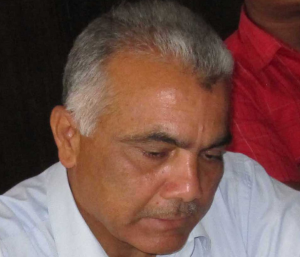
One interesting aspect of the Nepali public now is that its growing interest in the sovereignty of the state, stability and progress will democratize its foreign policy. Even ordinary citizens have begun to discuss national and global issues which used to be the prerogative of political leaders, experts, foreign ministry officials, academics and journalists in the past. The beauty of Nepali public sentiment is that it does not hold the image of the foreign state as an enemy to mobilize the population for national unity except for electoral and political rhetoric of politicians to deflect public attention. It is still relevant for its adaptive foreign policy behavior in the context of geostrategic shift to Asia where fragmented West is building grand democratic solidarity against China, Russia, North Korea and Iran. Nepali interest in the diversification of strategic partnership has added value to the intrinsic power of the state to mobilize extra resources from various sources for the overall national development and assiduously maintain independent position in the regional and international politics. But the constant geopolitical pulls and pressures also impose constraints on its delicate maneuver and a sense of national distinctiveness maintained by the heroes and builders of this nation. Nepalis have, therefore, valued to “keep the sanctity of its civilization than becoming a trading post of transit state or vibrant bridge only.
Globalization is faceless but its impact on small states like Nepal is tangible. It has expanded Nepal’s ecological, economic and political activities to the global sphere and put the nation in the global strategic gaze of contradictory strategies of expansion and containment. But it has become a force for de-agrarinization, de-industrialization, subsidy cuts in health and education causing “bad urbanization, economic inequality, and heightened ethnic awareness, responsible in some instances for fueling political extremism and the consequent disregard of human rights” (Kaplan, 2002: 100). Uneven globalization does not have an answer for how Nepal as a small state can address its ecological, social, economic and political challenges and re-moralize the leaders and citizens for building a social, constitutional and cosmopolitan solidarity to minimize its negative effects.
Reconciliation, reconstruction and recovery of Nepal from conflict, quake and pandemic require not only building a better future but also renovating the heritage of its past as it is a source of the nation’s extraordinary resilience, the art and culture of citizens which attract outsiders to see, learn and reflect on its philosophy and wisdom. Nepali citizens are attached to the bonds of their culture that fostered the cognitive map, reasons of state and shaped independent foreign policy behavior. A critical appreciation of its history of independence is a necessary condition for the citizens to exercise sovereignty in the future and co-create innovative ideas and practices that can make the life of a small state better in a competitive big world of uneven globalization.
End text.
Text courtesy: Small States in a Globalised World.
A book published by Centre for Nepal and Asian Studies) CNAS)
# With the straight permission from the author and Mrigendra Bahadur Karki, PhD ( CNAS).
Special thanks to the distinguished author Prof. Dahal and the Executive Director of the CNAS, Kirtipur, Nepal: Ed. Upadhyaya. N.P.








